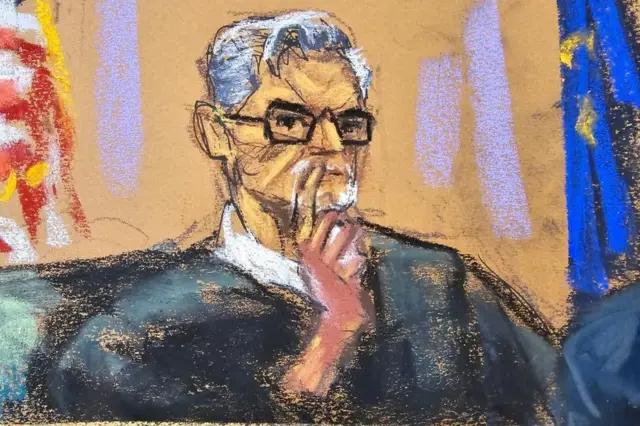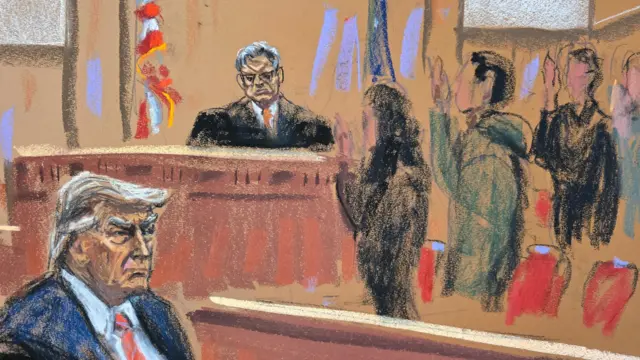Thanks for asking so many questionspublished at 19:55 BST 29 May 2024
 Brandon Livesay
Brandon Livesay
Reporting from New York
We've been answering reader questions about the Trump trial and there's been some fascinating queries.
A big thanks to our reporters Kayla Epstein and Madeline Halpert for sharing their knowledge while they sit inside a New York courtroom and wait for the jury to come back.
If the jury is still deliberating tomorrow, we will try and answer some more questions.
You can email us at YourQuestions@bbc.co.uk. Please include your name, age and location with any question you send in.
For now, let's check in with some other Trump trial-related things that have been happening today.






